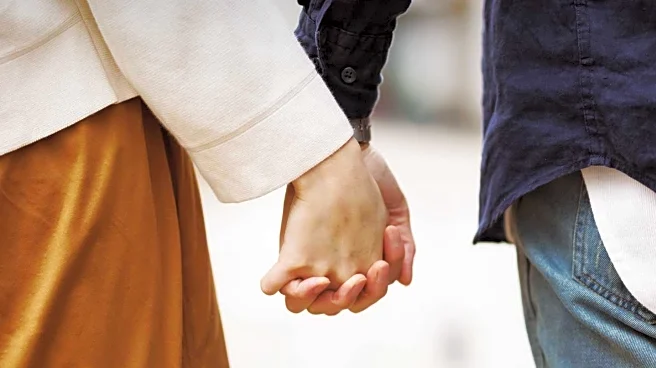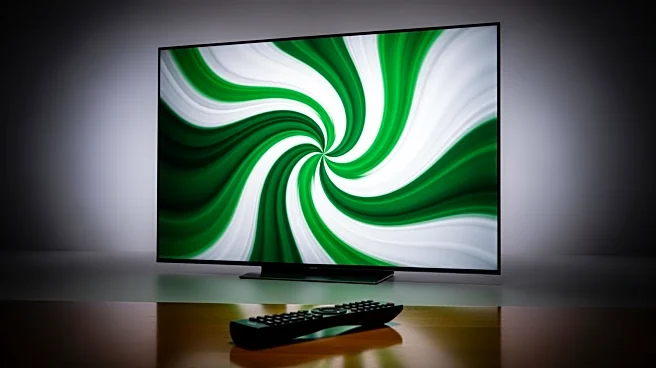What's Happening?
A recent article published by Vogue, titled 'Is Having a Boyfriend Embarrassing Now?', has ignited widespread discussion and debate about the state of heterosexual dating. The article, which was shared
on social media, quickly went viral, amassing over 5.7 million views on TikTok and gaining the author more than 100,000 new followers. The piece has sparked a global trend on TikTok, with many users creating videos in response. The article questions the traditional view of romantic relationships and suggests that many women are moving away from defining themselves by their romantic partners. This has led to a variety of reactions, including both support and criticism, highlighting a cultural shift in how relationships are perceived.
Why It's Important?
The viral response to the Vogue article underscores a significant cultural shift in the perception of romantic relationships among heterosexual individuals. It suggests that many women are reevaluating the importance of romantic relationships in their lives, potentially moving away from traditional norms. This shift could have broader implications for societal expectations and gender dynamics, as it challenges the historical view that having a male partner is a status symbol. The discussion also highlights ongoing issues of misogyny in the dating space, as well as the fatigue many feel with modern dating practices. This could lead to a push for more equitable and fulfilling relationship dynamics.
What's Next?
As the conversation around the article continues, it is likely that more individuals and media outlets will engage with the topic, potentially leading to further discussions about the evolution of dating norms. Brands and influencers may also continue to capitalize on the trend, using it to engage with audiences and promote products or ideas. Additionally, the debate may inspire further research and writing on the topic, contributing to a deeper understanding of modern relationship dynamics and the challenges faced by those navigating them.
Beyond the Headlines
The reaction to the article also highlights the power of social media in shaping public discourse and influencing cultural trends. The rapid spread of the article and the subsequent TikTok trend demonstrate how quickly ideas can gain traction and spark widespread debate. This phenomenon reflects the changing landscape of media consumption, where traditional journalism intersects with digital platforms to reach a global audience. It also raises questions about the role of media in challenging societal norms and the responsibility of journalists to address complex issues with nuance and sensitivity.










